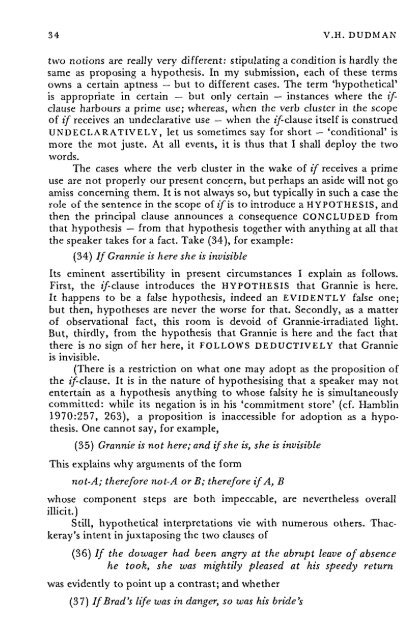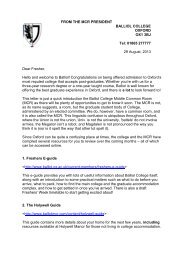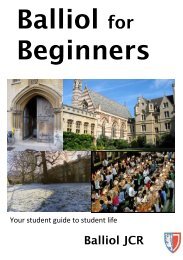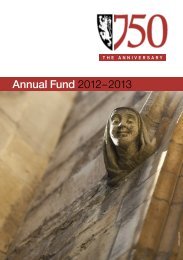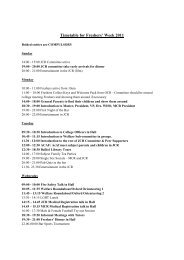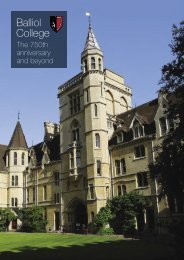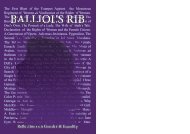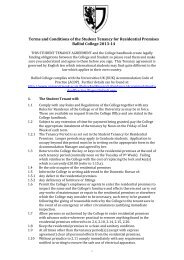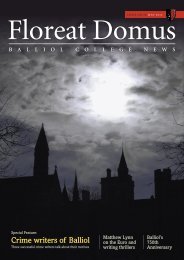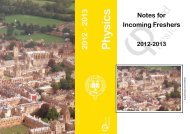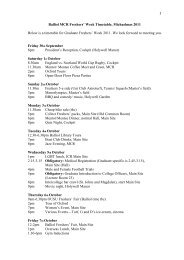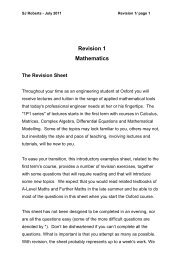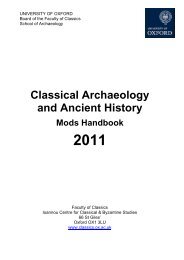TENSE AND TIME IN ENGLISH VERB CLUSTERS OF THE ...
TENSE AND TIME IN ENGLISH VERB CLUSTERS OF THE ...
TENSE AND TIME IN ENGLISH VERB CLUSTERS OF THE ...
- No tags were found...
You also want an ePaper? Increase the reach of your titles
YUMPU automatically turns print PDFs into web optimized ePapers that Google loves.
34 V.H. DUDMAN<br />
two notions are really very different: stipulating a condition is hardly the<br />
same as proposing a hypothesis. In my submission, each of these terms<br />
owns a certain aptness — but to different cases. The term 'hypothetical'<br />
is appropriate in certain — but only certain — instances where the ifclause<br />
harbours a prime use; whereas, when the verb cluster in the scope<br />
of if receives an undeclarative use — when the z/-clause itself is construed<br />
UNDECLARATIVELY, let us sometimes say for short — 'conditional' is<br />
more the mot juste. At all events, it is thus that I shall deploy the two<br />
words.<br />
The cases where the verb cluster in the wake of if receives a prime<br />
use are not properly our present concern, but perhaps an aside will not go<br />
amiss concerning them. It is not always so, but typically in such a case the<br />
role of the sentence in the scope of /is to introduce a HYPO<strong>THE</strong>SIS, and<br />
then the principal clause announces a consequence CONCLUDED from<br />
that hypothesis — from that hypothesis together with anything at all that<br />
the speaker takes for a fact. Take (34), for example:<br />
(34) If Grannie is here she is invisible<br />
Its eminent assertibility in present circumstances I explain as follows.<br />
First, the t/-clause introduces the HYPO<strong>THE</strong>SIS that Grannie is here.<br />
It happens to be a false hypothesis, indeed an EVIDENTLY false one;<br />
but then, hypotheses are never the worse for that. Secondly, as a matter<br />
of observational fact, this room is devoid of Grannie-irradiated light.<br />
But, thirdly, from the hypothesis that Grannie is here and the fact that<br />
there is no sign of her here, it FOLLOWS DEDUCTIVELY that Grannie<br />
is invisible.<br />
(There is a restriction on what one may adopt as the proposition of<br />
the z/-clause. It is in the nature of hypothesising that a speaker may not<br />
entertain as a hypothesis anything to whose falsity he is simultaneously<br />
committed: while its negation is in his 'commitment store' (cf. Hamblin<br />
1970:257, 263), a proposition is inaccessible for adoption as a hypothesis.<br />
One cannot say, for example,<br />
(35) Grannie is not here; and if she is, she is invisible<br />
This explains why arguments of the form<br />
not-A; therefore not-A or B; therefore if A, B<br />
whose component steps are both impeccable, are nevertheless overall<br />
illicit.)<br />
Still, hypothetical interpretations vie with numerous others. Thackeray's<br />
intent in juxtaposing the two clauses of<br />
(36) // the dowager had been angry at the abrupt leave of absence<br />
he took, she was mightily pleased at his speedy return<br />
was evidently to point up a contrast; and whether<br />
(37) If Brad's life was in danger, so was his bride's


